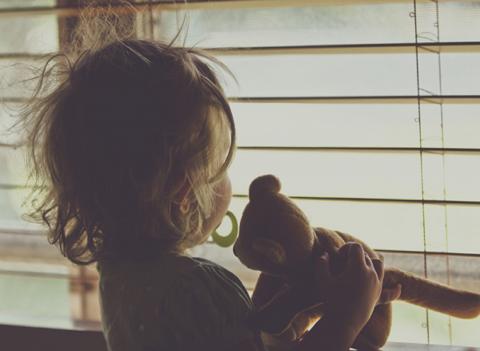
Emily Robinson Photography
Social Emotional Health and our Immigration Issues
My heart sinks every time I watch the news or read my Twitter feed. How did we get here? Our country has become so polarized when it pertains to our immigration system that we have lost the ability to feel empathy for those who seek assistance. As a mental health professional, I am alarmed that our government is dividing families. The Department of Homeland Security (DHS) is currently separating migrant children from their parents at the border and reneging on their past promises of safety to DACA recipients. These are unnecessary policies that will cause more trauma to already traumatized children and families seeking refuge in the U.S. We need this to change.
How do I know this? Because of what we in the mental health field call Adverse Childhood Experiences (ACEs).
Since 1998 we have had information on the impact of ACEs. The CDC-Kaiser Permanente ACE study found correlations between adverse childhood experiences and adverse physical health outcomes in adulthood. In fact, the study has prompted many in the medical and mental health fields to take a look at how we can prevent, treat and manage these adverse childhood experiences to have a healthier community and lower medical costs. But what about the adverse experiences of the immigrant community?
In the ACE questionnaire, the survey tool the CDC and Kaiser used to obtain the statistics and figures on their research subjects, there is a section on whether parents or other significant figures continually insulted or verbally hurt a child, but there are no questions about society's attitudes to an individual on the basis of ethnicity or race. While the original hasn’t been updated, in 2015 the Philadelphia ACE Study expanded the questionnaire to account for racism, bullying, dangerous neighborhoods, foster care, and witnessing violence outside of the family. This study found that being exposed to these stressors also accounted for toxic stress.
Thus, for many immigrant communities, including those with young children, continued exposure to explicit and implicit prejudicial messages that they are they are not “good enough” and/or “not worthy” of the acceptance of the dominant ideal of being an American, creates a space of hopelessness - building toxic stress in our children, families, and communities.
“Creating this atmosphere of systemic emotional adversity can lead to health outcomes that cost us as a society in medical costs, mental health costs, and in the lost ingenuity and progress of immigrant families, who are prevented from meeting a higher, more efficient standard in becoming part of the greater social structure"
In my work in the LA Unified school district, many of my young clients felt the fear of the possibility of their parents being deported. My clients in Los Angeles were a mixture of US-born teens and teens who had been brought to this country by their parents and were just discovering that they too had no legal status. These teenagers--my clients-- could not go through the typical teen rituals of getting a driver’s license, working a summer job, and dreaming of applying to college. In the scope of adverse childhood experiences, a lack of a sense of a safe future is incredibly debilitating. A constant sense of uncertainty creates poor decision making, mood swings, and impulsivity. Thus, many of my clients presented with depressive and anxious symptoms. Creating this atmosphere of systemic emotional adversity can lead to health outcomes that cost us as a society in medical costs, mental health costs, and in the lost ingenuity and progress of immigrant families, who are prevented from meeting a higher, more efficient standard in becoming part of the greater social structure
How could they hold hope when all that they are suppose to be working for in the “American Dream” is unattainable to them? In this way, the opportunities that the Deferred Action for Childhood Arrivals (DACA) program gave my clients are crucial in building and creating a space for these teens to heal, grow, and continue to strengthen our communities. DACA helped them see a future. It helped them dream. This is why we need to pass the DREAM Act. If we want to support the social-emotional health of our communities, then DACA is (for a large segment of our immigrant population) a mitigating solution to problems of toxic stress in our youth.
But as I mentioned earlier, it doesn’t end with the DREAM Act. The Department of Justice and Homeland Security family separation policy for those families who cross the border and are caught is increasing the numbers of families suffering toxic stress and trauma. Recently someone asked me “how could our government have this cruel policy?” My response is simple. It is a punitive response to border crossing. Many feel that if a parent chooses to place their child in danger and break our country’s immigration rules, then the consequences need be intense so those who might be thinking of doing the same will be deterred. Those who may believe in separating families often ask, “What kind of caregiver sends their unaccompanied minor to cross the border or takes that kind of risk with their child?” The answer? A desperate one.
As parents, we have all made hard and imperfect decisions for the good of our children. We will always measure the safety and prosperity of our children and attempt to make the best choices possible. A family in gang territory in El Salvador or from an impoverished town in Mexico will make the ultimate sacrifice to give their children a chance. In fact, there are already numerous studies showing that this policy will not deter families when they are fighting for their lives as they seek refuge in neighboring countries. As a society we should consider if the punishment is greater than the crime. When a child is separated from their primary caregiver, it can be incredibly detrimental to their well-being. For example, a child that is abruptly separated from a caregiver will become hypervigilant to their surroundings. This looks like ADHD or oppositional/ challenging behavior, but in truth they are strategies for remaining safe and aware of their surroundings, which they now experience as dangerous due to the loss of their caregivers. Again in thinking about ACEs and toxic stress for children, this type of traumatic experience does not help our community, immigrants attempting to give a better life for their children, or our society’s social emotional health.
“My hope is that our nation would lead with empathy and assistance, and not with punishment and fear"
And according to my friends at MomsRising, in addition to causing trauma for children and their parents, family separation violates the rule of law, overburdens our current government systems, and ultimately leads to more financial cost.
In the end we have to ask ourselves what are we afraid of? What of the immigrant experience do we wish to honor and increase? How can we find a place where our society is rich with continued diversity? There has to be a different solution for those families who in desperate times make desperate decisions. My hope is that our nation would lead with empathy and assistance, and not with punishment and fear.
*Originally in Spanish el Nuevo Herald



The views and opinions expressed in this post are those of the author(s) and do not necessarily reflect those of MomsRising.org.
MomsRising.org strongly encourages our readers to post comments in response to blog posts. We value diversity of opinions and perspectives. Our goals for this space are to be educational, thought-provoking, and respectful. So we actively moderate comments and we reserve the right to edit or remove comments that undermine these goals. Thanks!